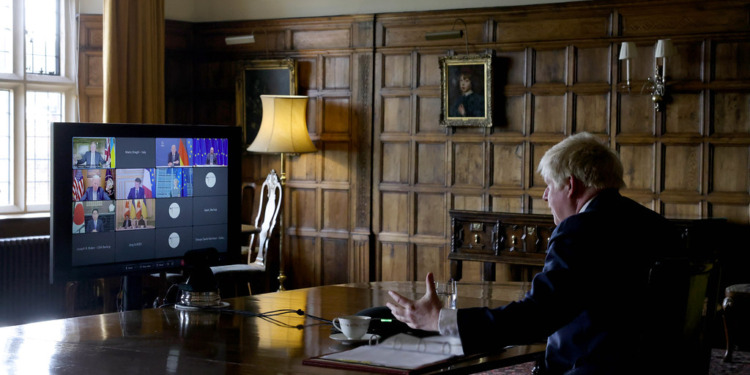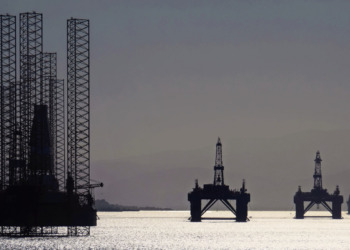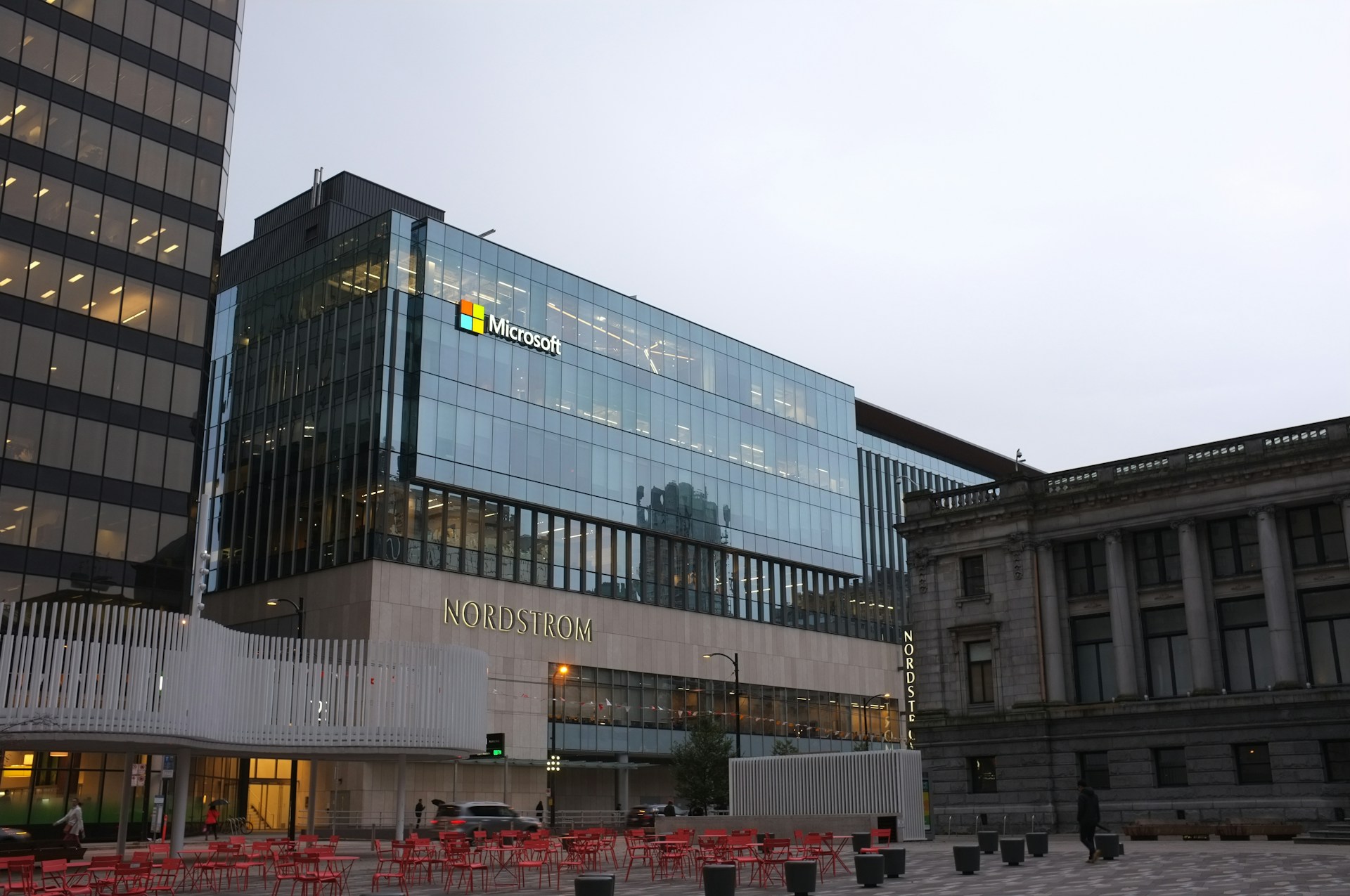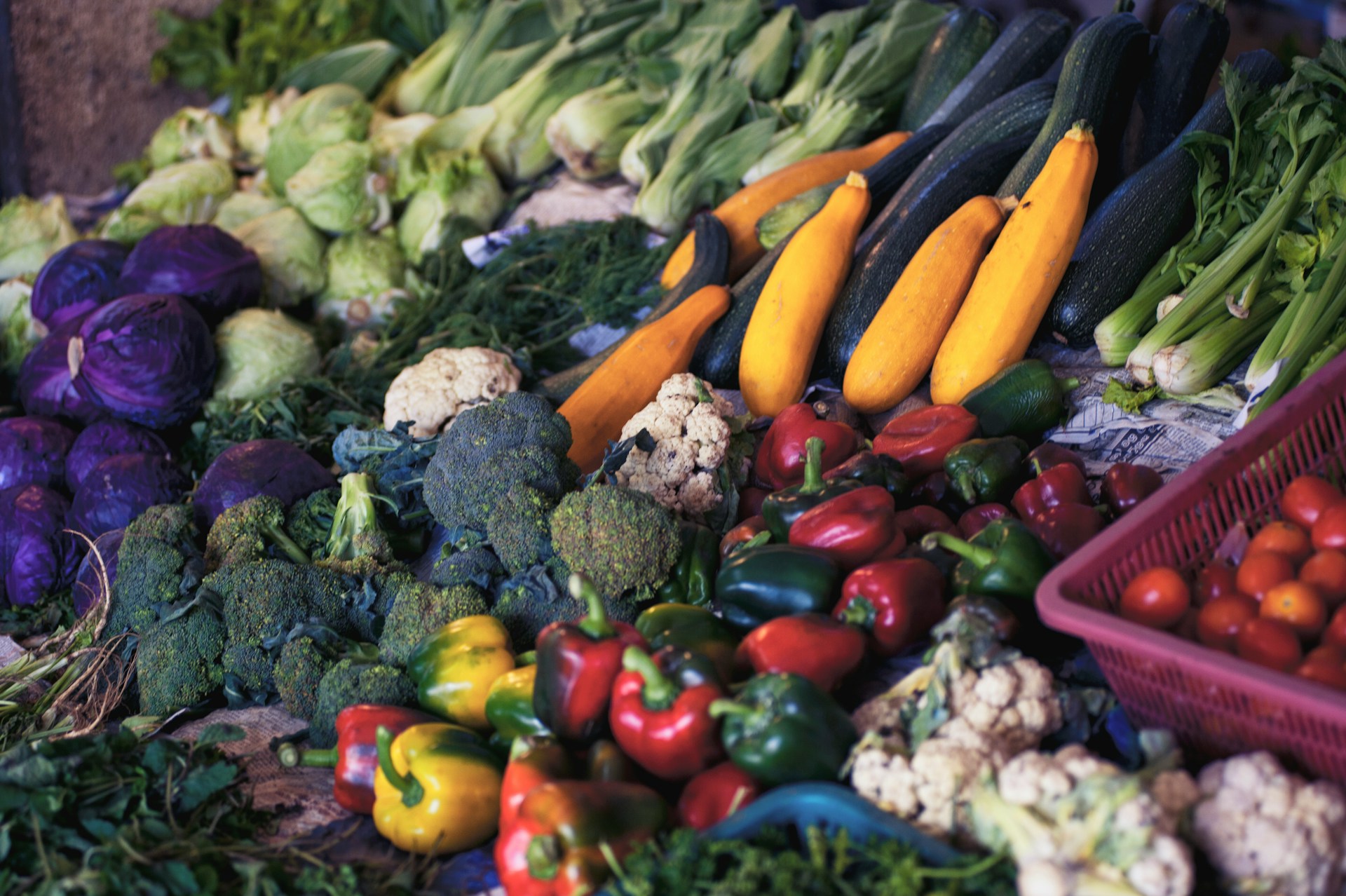During the virtual summit that gathered G7 nations and Ukrainian president Volodymyr Zelensky last Sunday, G7 leaders unanimously committed to putting an end to their dependency on Russian energy by phasing out Russian oil imports.
US president Joe Biden also unveiled a new series of sanctions on Russia, targeting services, Russian elites, media, and the defence industry. These measures aim at closing loopholes in existing sanctions and work to reinforce Russia’s economic isolation.
The G7 virtual summit marks a show of solidarity to Ukraine and a rallying call for liberal democracies ahead of Russia’s 9 May Victory Day parade in Moscow, a much-anticipated event as experts told the international community to brace for possible new announcements by Putin raising the stakes in the conflict. G7 nations have further confirmed their determination in exerting the greatest pressure possible on Vladimir Putin’s regime in retaliation for the attack on Ukraine.
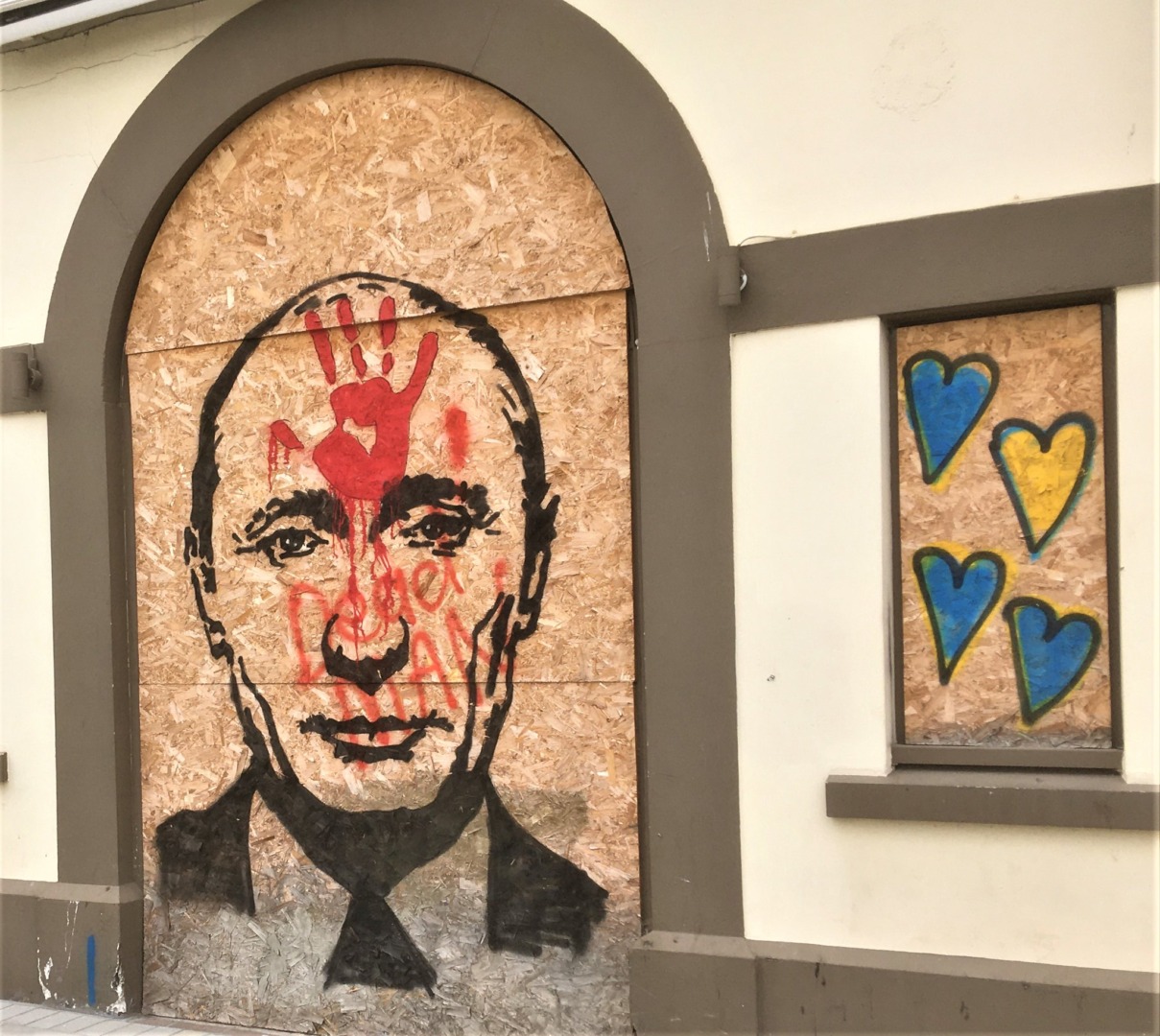
Highlights of the G7 summit: ban on Russian energy and new layer of US sanctions
In a joint statement, G7 leaders pledged to phase out Russian oil imports and work towards alternative systems of global energy supplies: “We commit to phase out our dependency on Russian energy, including by phasing out or banning the import of Russian oil. We will ensure that we do so in a timely and orderly fashion. We will work together and with our partners to ensure stable and sustainable global energy supplies and affordable prices for consumers.”
Meanwhile, the US detailed new measures aimed at impacting Russia’s economy and war effort. They include the sanctioning of eight executives from Sberbank, Russia’s largest financial institution, and 27 from Gazprombank.
This is the first time Russia’s giant gas exporter is directly targeted by punitive measures. The US and its allies had so far left Gazprombank untouched because of its key role in providing Europe with the Russian gas it heavily relies on.
Sanctions against Gazprombank’s executives add weight to the Group of Seven’s pledge to cut dependency on Russian energy, marking what sounds like an immediate enactment.
However, the timeframe and means of achieving such independence from Russian energy supplies remain unclear. Discussions that, in Brussels, followed the summit, gathering diplomats around the question of an EU wide timetable for a phaseout of Russian energy, were described as “hard going,” particularly as a result of Hungary’s objections that are delaying the process.
As I write, negotiations are still ongoing, with Slovakia, and the Czech Republic seeking permission to continue importing Russian oil until the end of 2024 or even beyond. Budapest wants a five-year period to achieve independence from Russian oil and claims it will need a new pipeline connection with Croatia, which has access to the sea.
A senior Biden administration official told reporters: “This is not a full block. We’re not freezing the assets of Gazprombank. What we’re signalling is that Gazprombank is not a safe haven, and so we’re sanctioning some of their top business executives… to create a chilling effect.”
Related articles: Putin Decrypted: Why He Falsely Claimed Victory in Mariupol | Russia-Ukraine: The End Story | ‘In it Together’: More Humanitarian Aid for Ukraine
Other US sanctions will target three Kremlin-controlled television stations – Channel One, Russia-1 and NTV – in an attempt to hinder Russian state propaganda. American companies will no longer be allowed to sell broadcasting equipment like video cameras or microphones to the stations. US advertising on Russian channels is also banned.
Americans are now forbidden to provide accounting and consulting services to Russians as the Biden administration fears US service providers could be used by Russian companies to dodge the measures imposed on them.
“They’ve been asked by Russian companies to help them figure out how to reformulate their business strategies in the wake of sanctions, in some cases how to get around these sanctions, or in the case of accountants how to hide some of their wealth, and we’re shutting that down,” a senior administration official said.
Technology export bans on industrial items including heavy engines like bulldozers were also decided by the Biden administration with the aim of inhibiting the Russian war effort by curtailing their access to the supply chain for defence manufacturers. The US says that two major Russian tank factories, Uralvagonzavod Corporation and Chelyabinsk Tractor Plant, have already been compelled to suspend production because of shortages in foreign components.
Finally, the US has imposed visa restrictions on another 2,600 Russian and Belarusian officials, including the Sberbank and Gazprombank executives, military officials, and other individuals who are believed to have played a role in the invasion. The US has also announced new visa policies are in the making which would automatically apply to any official accused of human rights violations.
In the context of celebrations for the end of WWII, G7 and Zelensky clarify war aims, and Putin continues to blame the West
This Sunday marked the 77th anniversary of the end of the second world war, and the virtual summit occurred in anticipation of Russia’s Victory Day parade in Moscow on May 9.
The international community was bracing for this event as experts warned Victory Day could be Putin’s opportunity to make declarations that would significantly raise the stakes of the conflict. They notably feared he would declare a state of general mobilisation as part of an official declaration of war, or threaten to use Russia’s nuclear arsenal.
However, today’s Victory Day saw nothing of the sort. Spoken in front of over 10,000 troops, Putin’s speech did not contain any new announcements with regard to the conflict in Ukraine. Instead, the Russian president repeated the rationales he kept invoking since the start of the hostilities, drawing parallels between the war in Ukraine and the battle against Nazism, and describing what the Kremlin has called its “special military operation” as the “forced, timely, and only correct decision.”
“NATO countries did not want to listen to us,” said Putin. “They had different plans, and we saw it. They were planning an invasion into our historic lands, including Crimea… Russia gave a pre-emptive rebuff to aggression, it was a forced, timely, and only right decision.”
Addressing Russian troops who he claimed arrived from the battlefield in Ukraine, Putin added: “You are fighting for the homeland, for its future, for no one to forget the lessons of World War two.”
The day prior, during the virtual summit, G7 leaders condemned Putin’s actions for “bringing shame on Russia and the historic sacrifices of its people” in their struggle against Nazi Germany during WWII.
They also accused the Kremlin of “an attack on feeding the world” as the invasion of Ukraine resulted in the blockage of Ukrainian food exports against international law.
In their joint statement, G7 leaders further clarified the aims of the current conflict: “Ukraine’s ultimate aim is to ensure full withdrawal of Russia’s military forces and equipment from the entire territory of Ukraine and to secure its ability to protect itself in the future.”
Though those war aims are articulated from a Ukrainian perspective, the G7 nations’ joint statement could hint at their determination to reject any scenario where the conflict would settle with the Russian annexation of Donbas, leaving Putin with no other option but total defeat.
This raises concerns about whether NATO will confront Putin head-on despite fears of a nuclear response.
Looking forward: While the UN Security Council remains paralyzed by the Russian veto, the only remaining high-level forum is the G7
Another standout feature of the war in Ukraine so far is the absence of the United Nations, more specifically the UN Security Council (UNSC) the UN’s organ charged with ensuring international peace and security.
The UNSC has been held back from intervening by Russia itself, who counts amongst the so-called Big Five, i.e. the five veto-wielding members of the security council. The fact that several G7 members are part of the Big Five – the US, France and UK – cannot change the outcome: Russia and China are clearly always going to stand in the way.
Last month, UK’s Foreign Secretary Liz Truss had raised concern over Russia’s permanent membership, accusing Vladimir Putin’s regime of using the UN veto as a “green light for barbarism”: “We do have concerns about an international security architecture that has Russia as one of the permanent members of the security council and they have used their veto as a green light for barbarism and part of our response has been working more closely with allies like the G7, allies like NATO because we simply haven’t seen enough taking place at the UN level.”
Ukraine President Zelinsky urged the UN to boot Russia out of the Security Council in an impassioned speech on April 5. If not, he said, it should “dissolve” itself.
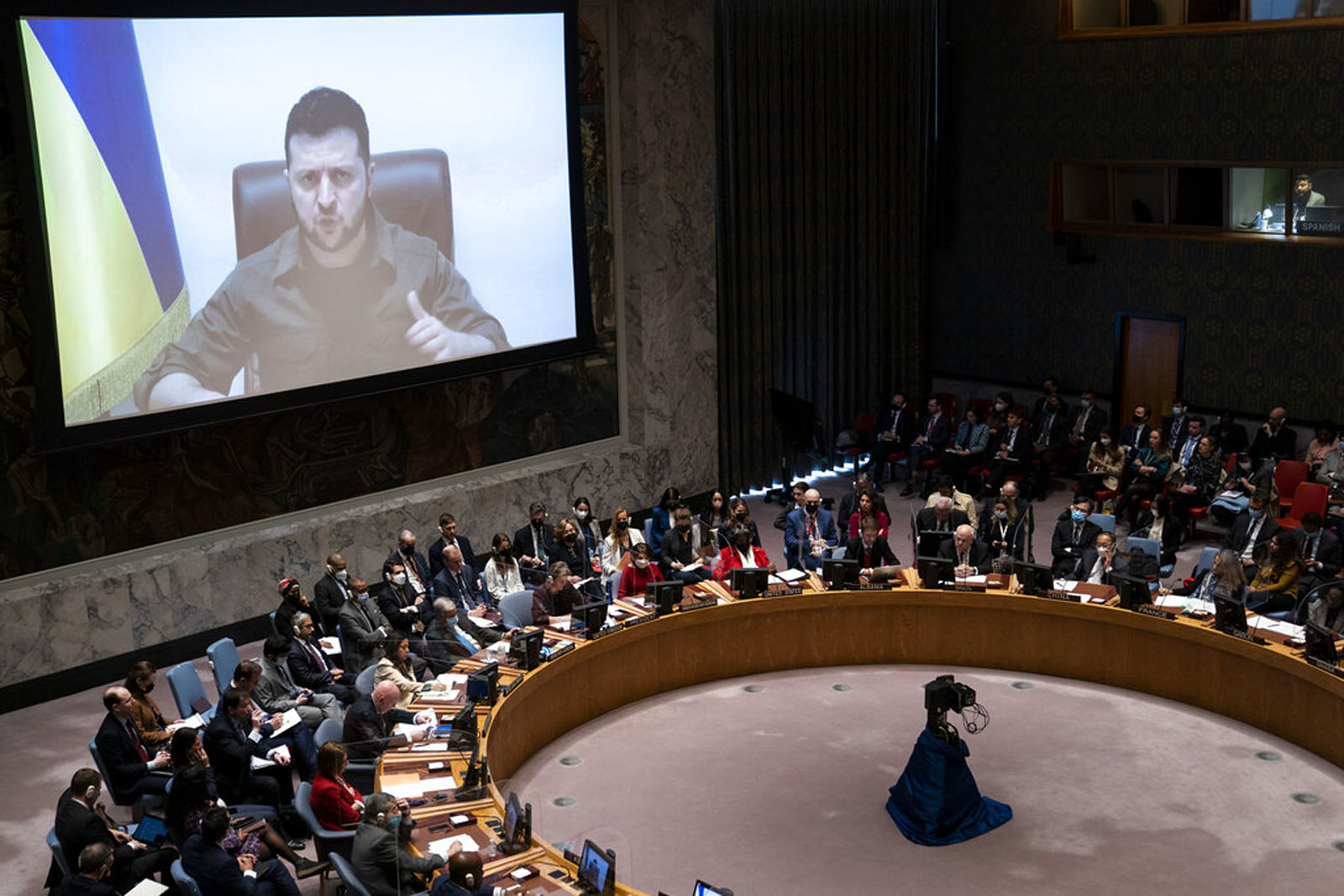
Only three days ago was the UN Security Council able to issue its first statement on the war in Ukraine, expressing “deep concern regarding the maintenance of peace and security of Ukraine,” albeit abstaining from using the words “war,” “conflict,” or “invasion.” Clearly, once again, as a result of Russia threatening to veto it.
With the UN Security Council incapacitated by Russia’s veto, the G7 summit becomes the only remaining international fora where coordinated action between governments can be taken. Nevertheless, the G7 is only a forum, not a decision-making body: It can express political positions, it can call for action but not force it on anyone member. As to the G20, the other big international group outside the UN system, its importance is rising but it is still an economic rather than a political forum – a place for discussion rather than decision-making.
This said, the G7 is showing a strong, compact face. It has issued a comprehensive, concrete statement of support to Ukraine, with no dissenting voice as used to be the case with G7 meetings during the Trump presidency. With President Biden, the G7 is united again and back as a major voice for the West.
If Putin did not seize the occasion of Victory Day to make new announcements that would escalate tensions, it doesn’t follow that Russia is planning to de-escalate the conflict. As the conflict drags on and the international community is running out of options to fight Russia indirectly, the question of NATO’s direct involvement remains open – but the moment it will have to find a decisive answer is drawing closer each day.
Editor’s Note: The opinions expressed here by Impakter.com columnists are their own, not those of Impakter.com — In the Featured Photo: 08/05/2022. London, United Kingdom. Prime Minister Boris Johnson joins the G7 leaders on a video call with the President of Ukraine Volodymyr Zelenskyy. Featured Photo Credit: Andrew Parsons/Number 10/Flickr.


